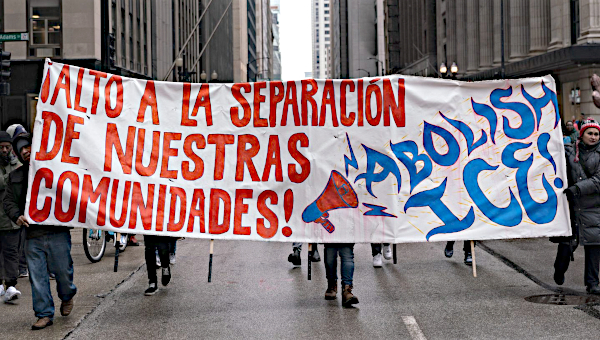As you may have heard, Howard Zinn has changed his mind, and has said he will vote for Nader; with the qualifier that Zinn advises people in battle-ground/swing states to support Obama against McCain, to make sure that McCain is defeated. This is somewhat of an improvement on his previous position, but still not the radical break with the system we would expect from him.
My own position, to boycott the elections, needs a qualification.
I must admit that I respect anybody who votes for Nader or McKinney (Amee Chew makes a great case for supporting McKinney in her October 29 Counterpunch piece), as a way of registering their opposition to the 'two party' monopoly. I have argued in previous articles that, IF you think by voting you can bring change, then know that the only change worth voting for is the kind presented in the platforms of the independent candidates. Also, voting for independent candidates as a way of registering your support for people who are actually addressing our problems is a way of getting a real tally of how many people actually oppose the establishment candidates and support real change.
My argument for a boycott addresses a different sub-set of the population affected by this system, whether we vote or not. The point about the boycott is that regardless of the outcome of these elections, which is the continuation of the empire and its deep-rooted corruptions, we need to look past the elections and think how to build a long-term strategy for a real movement for fundamental change. This must include addressing those who do not vote, since it is they who are getting the biggest brunt of this system's cruelties. They are most likely unemployed or underemployed, have no healthcare, most likely poor; they include the millions who go hungry (yes, in this 'great' country called America); they include the undocumented immigrants; and they are the ones who are rightly disgusted with the system, and want nothing to do with the kind of politics that the system presents as the only kind in existence.
People who do not vote are not participating for very good reasons. However, in the absence of a loud boycott, their non-participation gets interpreted as 'conceding' or 'apathy'. My point here is that, NO, this is not apathy. In fact it makes perfect logical sense, and it is far more honest than participating in fraudulent elections that only re-produce illusions about America, the 'world's greatest democracy'; illusions that only buttress the imperial system.
I come from the so-called Third World, in which boycotting elections is a political tool the masses, and the parties that stand with them, employ with good effect. Imran Khan's party (Insaf) in Pakistan, for example, boycotted the last elections there, and it was an organized message sent to the establishment that the rulers would not get the stamp of approval from the opposition. This, far from re-creating 'apathy' or 'conceding' the elections, actually makes governments nervous. In Iran, for another example, you are required to take your birth certificate with you when you vote, so the authorities can stamp it, so they can see who has not participated, so they can do onto you what they will, should you have to deal with the authorities at some point.
So, boycott is actually a very powerful political tool, because it gives political voice to those who refuse to participate. Simply sitting at home and not announcing that you are boycotting is a different matter. Boycott is a political move, with a long-term vision in mind.
So, we must take seriously the necessity of building a truly oppositional party. The first step in that direction is to either vote for independent candidates or conduct a boycott of these elections with the declaration that voting is bunk until real political alternatives representing people's needs are built. Don't waste your vote, and don't encourage the establishment bastards.
Britain pulls troops from US base in Qatar as Iran threatens response to
Trump
-
Middle East braces for US intervention in Iran and likely response from
Tehran







1 comment:
The only problem with boycotting the polls is that anyway the turnout is less than half the registered voter population, so abstention can go unrecognised.
Post a Comment